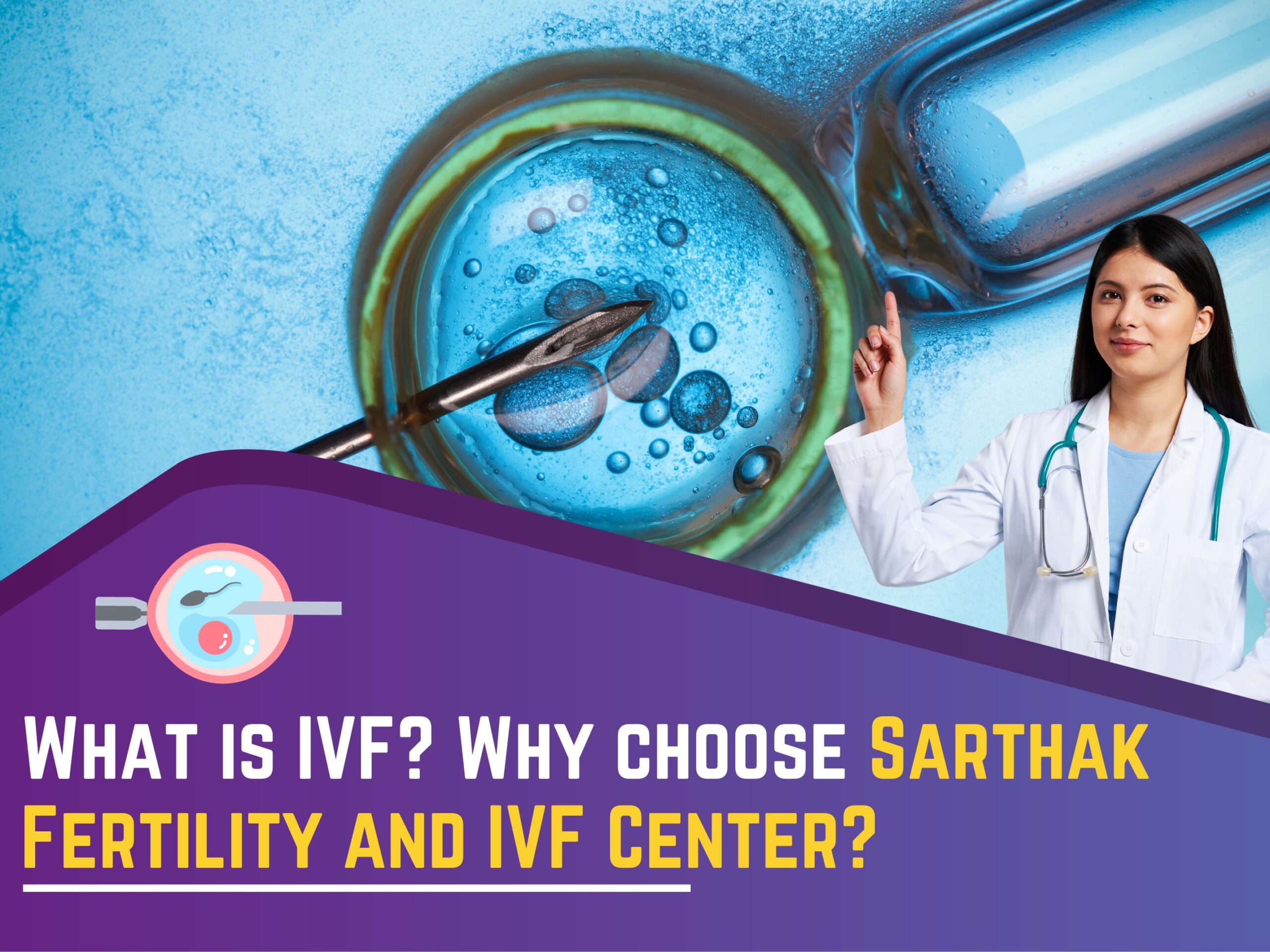What is IVF? | Why choose Sarthak Fertility and IVF Center in Hisar?
In Vitro Fertilization, commonly known as IVF, stands as a revolutionary medical advancement that has transformed the landscape of fertility treatment. It's a sophisticated assisted reproductive technology designed to assist individuals and couples in achieving pregnancy when conventional methods have proven unsuccessful, Now Let’s know about IVF Treatment and Benefits.

What is IVF?
In Vitro Fertilization (IVF) stands as a groundbreaking method within the realm of assisted reproductive technologies, designed to overcome various fertility challenges that hinder natural conception. This intricate procedure involves a meticulously orchestrated sequence of steps aimed at facilitating conception outside the human body, creating optimal conditions for fertilization and early embryo development within a controlled laboratory environment.
How Does IVF Work?
- Stimulation of Egg Production: Before egg retrieval, the woman typically undergoes hormone therapy to stimulate the ovaries to produce multiple eggs instead of the usual one egg per cycle.
- Egg Retrieval: Once the eggs reach maturity, a minor surgical procedure retrieves them from the woman's ovaries using ultrasound guidance.
- Sperm Collection: Meanwhile, the male partner provides a sperm sample, which is processed in the laboratory to isolate healthy, motile sperm.
- Fertilization: In the lab, the eggs and sperm are combined for fertilization in a controlled environment. The fertilized eggs, now embryos, are monitored for growth.
- Embryo Transfer: After a few days of observation, one or more embryos are transferred into the woman's uterus through a thin catheter.
- Waiting for Pregnancy: A successful embryo implantation may result in pregnancy. Any remaining viable embryos can be frozen for future use.
Indications for IVF
- Fallopian Tube Damage or Blockage: IVF is often recommended for women with blocked or damaged fallopian tubes hindering natural conception.
- Male Factor Infertility: Couples facing male infertility issues, such as low sperm count or motility, may opt for IVF.
- Endometriosis or Ovulation Disorders: Women with conditions like endometriosis or irregular ovulation cycles might benefit from IVF.
Benefits of IVF Treatment:
- Higher Success Rates: IVF has relatively higher success rates compared to other fertility treatments, especially in cases of severe infertility.
- Controlled Environment: By fertilizing eggs outside the body, IVF offers a controlled environment for embryo development, enhancing the chances of successful implantation.
- Multiple Embryo Preservation: Viable embryos that aren’t used during the initial cycle can be frozen and stored for future attempts.
Factors Affecting IVF Success:
- Age of the Woman: Younger women generally have higher success rates with IVF.
- Quality of Eggs and Sperm: The quality of eggs and sperm used significantly impacts the success of IVF.
- Underlying Health Conditions: Certain health issues can affect the success of IVF, emphasizing the importance of pre-treatment health assessments.
Applications and Considerations:
IVF serves as a viable solution for various fertility challenges, including tubal factor infertility, endometriosis, male factor infertility, unexplained infertility, advanced maternal age, and genetic disorders. However, success rates can be influenced by factors such as age, the quality of eggs and sperm, underlying health conditions, and lifestyle factors.
Conclusion:
In Vitro Fertilization (IVF) stands as a leading assisted reproductive technology offering hope to couples facing infertility challenges. Its multifaceted procedures and controlled environment make it a viable option for many, but individual success rates may vary based on specific health factors and circumstances.
Consider factors like success rates, the expertise of the medical team, facility accreditation, available technologies, patient care, location, cost, and personalized treatment plans when selecting an IVF center.
IVF centers offer a range of services including IVF, egg freezing, intrauterine insemination (IUI), preimplantation genetic testing, fertility preservation, donor egg/sperm programs, and comprehensive fertility evaluations.
The IVF process involves ovarian stimulation, egg retrieval, sperm collection, fertilization in a lab setting, embryo culture, embryo transfer, and subsequent monitoring for pregnancy.
Success rates can be influenced by various factors including age, underlying infertility causes, egg and sperm quality, previous reproductive history, and the IVF center’s expertise and technology.
The number of IVF cycles required varies for each individual or couple and depends on multiple factors including age, infertility diagnosis, response to treatment, and financial considerations.

